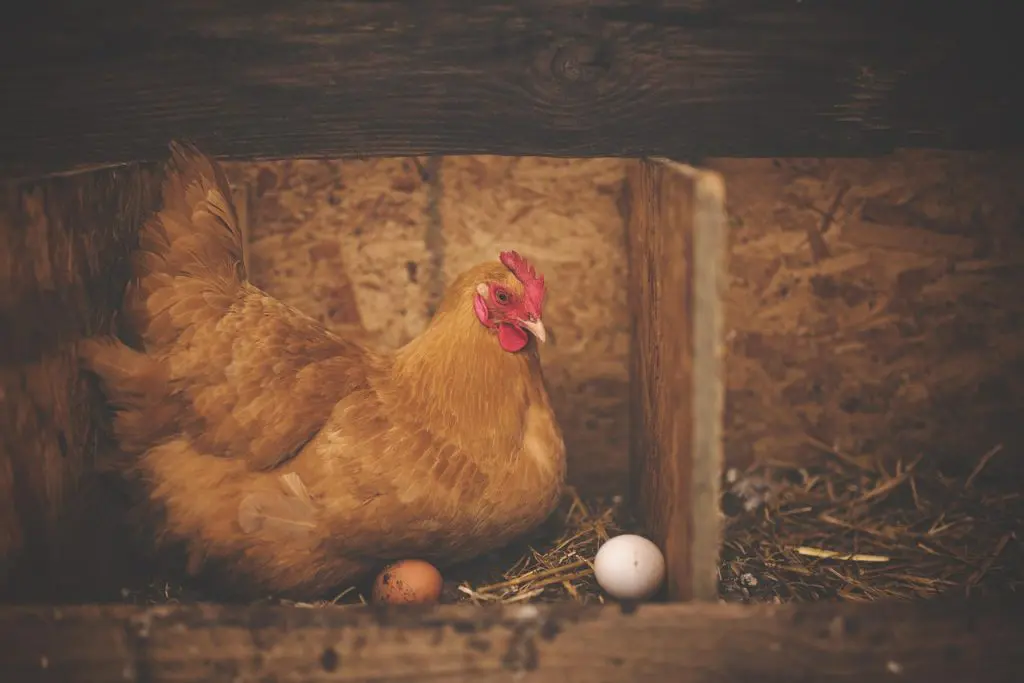
Strict Biosecurity ‘Essential’ After Bird Flu Case in Donegal The Ulster Farmers’ Union (UFU) is urging all poultry keepers to enhance their biosecurity measures following the recent confirmation of avian influenza (bird flu) in a backyard flock in County Donegal. This case follows multiple detections of avian influenza in wild birds across Ireland, particularly seabirds […]
The Ulster Farmers’ Union (UFU) is urging all poultry keepers to enhance their biosecurity measures following the recent confirmation of avian influenza (bird flu) in a backyard flock in County Donegal.
This case follows multiple detections of avian influenza in wild birds across Ireland, particularly seabirds along coastal areas. Most recently, a wild bird in County Down also tested positive, heightening concerns about the virus’s spread in Northern Ireland.
‘The risk of avian influenza remains very real,’ said UFU Deputy President Glenn Cuddy. ‘With confirmed cases in neighbouring areas and local wild bird detections, we cannot afford to be complacent. Whether you keep a few hens in the back garden or manage a commercial unit, strict biosecurity is essential. It’s our first and best line of defence.’
Climate change is influencing the migratory habits of wild birds, potentially altering the spread of avian influenza. Warmer winters and changing food availability can lead to unusual migration routes or extended stays, increasing contact between wild and domestic birds and creating new challenges for disease surveillance.
Biosecurity refers to the set of practices and measures designed to prevent the introduction and spread of harmful organisms, such as viruses, bacteria, or pests, to animals, plants, or humans.
In the context of poultry farming, biosecurity aims to protect flocks from diseases like avian influenza (bird flu) by creating barriers between the birds and potential sources of infection.
UFU is advising all poultry keepers, from backyard hobbyists to commercial farmers, to implement the Department of Agriculture, Environment and Rural Affairs (DAERA) biosecurity guidance without delay. These include:
Restricting access to poultry housing to only essential personnel.
Using foot baths and disinfection protocols at all entry points.
Preventing contact with wild birds, especially around feed and water.
Regular cleaning and disinfecting of poultry houses and equipment.
Isolating new birds before introducing them to existing flocks.
Avian influenza spreads through contaminated feed, water, droppings, and saliva. All bird keepers should watch for signs of infection in birds, which include:
Sudden death
Swollen head
Runny or closed eyes
Tremors or lack of coordination
Drooping wings or dragging legs
Breathing difficulties
Drop in egg production
Avian influenza outbreaks can have wider ecological consequences beyond domestic poultry. Mass culling of infected birds, disruptions to local food chains, and the disposal of carcasses all carry environmental risks. Proper biosecure disposal methods are essential to prevent water and soil contamination, especially in rural and coastal ecosystems.
DAERA reminds all poultry keepers that bird registration is a legal requirement, with the exception of pet birds housed exclusively indoors. Registration helps authorities monitor and respond to disease outbreaks effectively.
Avian influenza is a notifiable disease in poultry, meaning any suspected cases must be reported immediately to DAERA. Early detection is critical for controlling its spread.
The public is also urged to remain alert and not to touch sick or dead wild birds. Any sightings should be reported to DAERA using their online reporting tool.
‘The disease doesn’t discriminate between flock size or location,” added Cuddy. “We will continue working closely with DAERA and other stakeholders to support farmers and protect Northern Ireland’s poultry sector.’
As of early August, the UK’s Department for Environment, Food & Rural Affairs (Defra) has confirmed eight bird flu cases since the beginning of July, the majority in England, indicating that the threat is not isolated to one region.
Whether keeping hens in a backyard or managing a large flock, all poultry owners share the responsibility of maintaining high biosecurity standards. Vigilance, early reporting, and compliance with official guidance are key to protecting the entire poultry sector in Northern Ireland and beyond.
Outbreaks of bird flu can devastate rural economies, especially in areas where poultry farming supports local employment. Investing in preventative measures like farmer training, local testing infrastructure, and emergency funds can help improve long-term resilience and reduce economic fallout from future disease outbreaks.
At All-Ireland Sustainability, we’re committed to building a greener, fairer island, together. Stay informed on the latest environmental initiatives, community action, and policy developments shaping sustainability across Ireland, North and South.
👉 Sign up for our newsletter today and be the first to hear about upcoming events, expert insights, and ways to get involved.
Whether you’re a seasoned advocate or just starting your journey, new members are always welcome—your voice matters.
Subscribe now and be part of the All-Ireland Sustainability network.